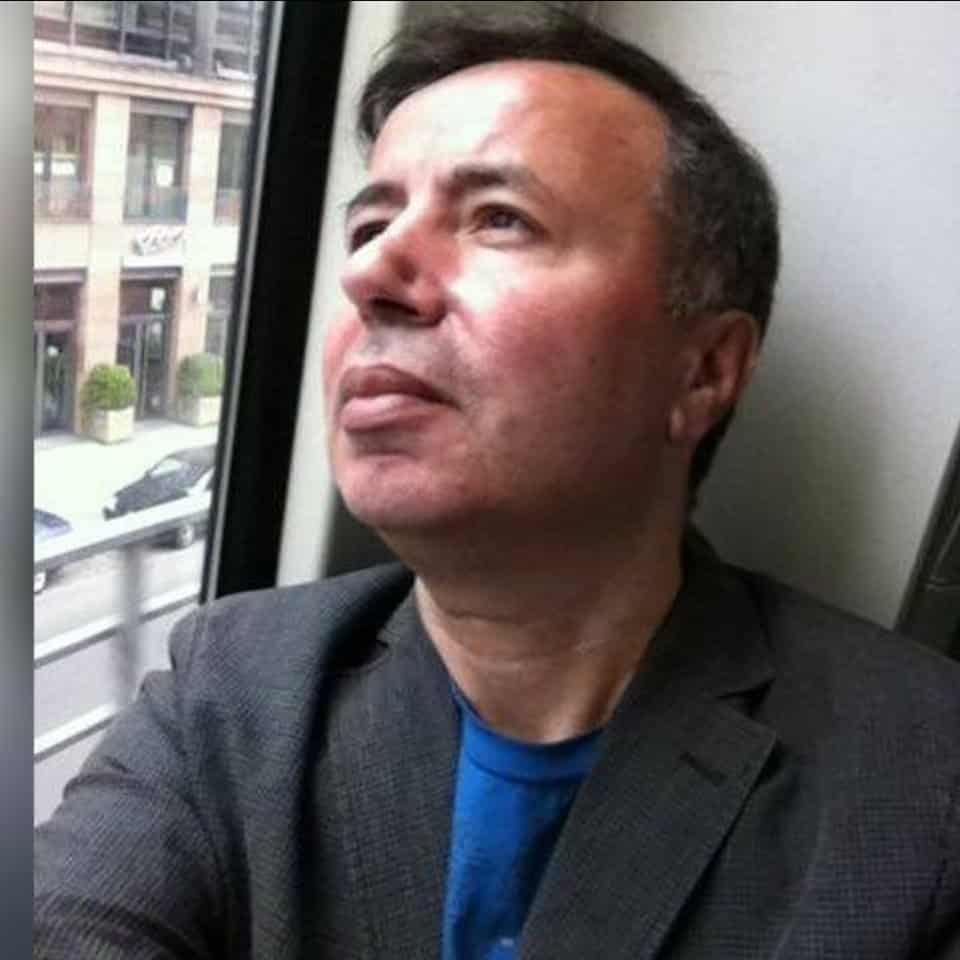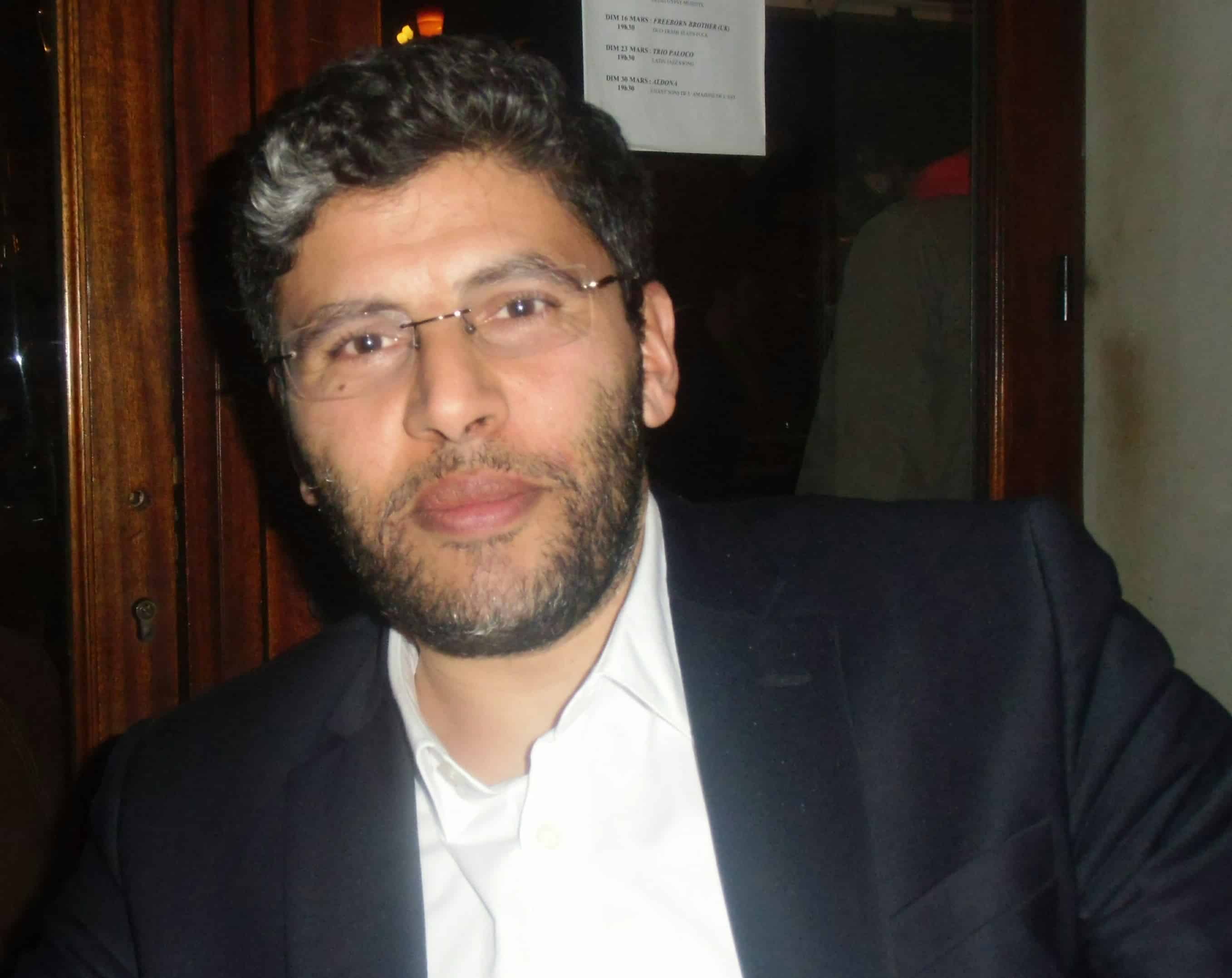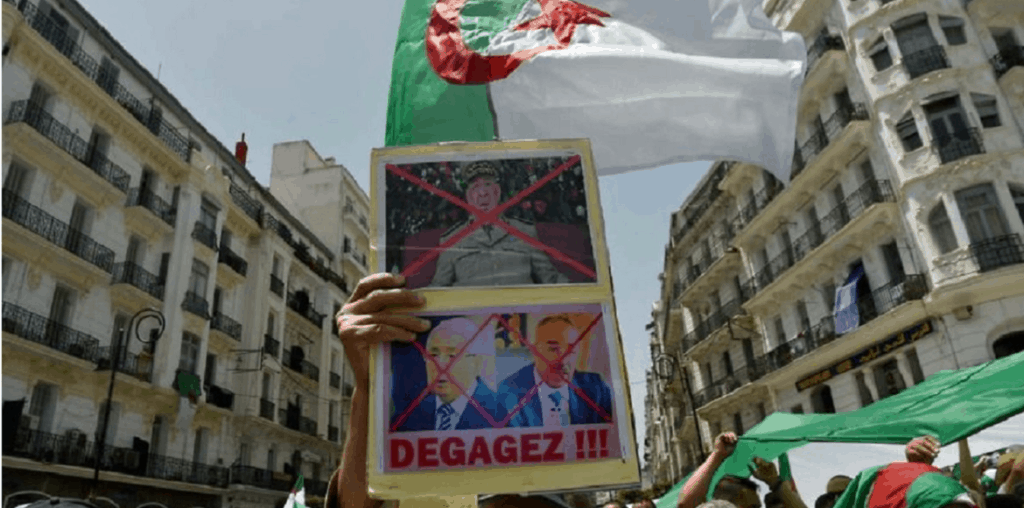Denis Korkodinov – Interview with Kamal Deeb and Malik Boumediene.
Algeria is preparing for the presidential election on December 12, 2019. The main difficulty is that the election campaign takes place against the backdrop of social unrest in the country. None of the five presidential candidates in Algeria knows how to stop the protest and an extremely dangerous situation is going to develop.
Especially for World Geostrategic Insights, we talked about this with a Canadian political expert, a professor at the University of Ottawa, Kamal Deeb, as well as a professor of public law at the Jean Jaures University in Toulouse, a leading specialist at the Center for Research in Diplomacy, Public Administration and the policies of the University of Grenoble (France) by Malik Boumediene.
1. In Algeria, protests that are taking place on the eve of the presidential elections scheduled for December 12, 2019 are still ongoing. However, it is possible that the results of the vote will not be accepted by the protesters, and therefore social unrest will continue after the election day. Meanwhile, a number of sources indicate that the protest movement in Algeria has an external direction, alluding to the United States. Do you agree with this opinion? Who is the moderator of protests in Algeria? In your opinion, how will the protest pressure develop after December 12, 2019? Is it possible to reach a consensus between the protesters and the new president of Algeria?

KAMAL DEEB: The suggestion that the protest movement in Algeria has external directing with a hint of the United States has some value.
Three elements explain the presence of foreign interference in the internal affairs of states:
1.Genuine domestic complaints. The presence of chronic corruption in Algeria is a matter of serious concern to the new generation and is the most important component through which external intervention occurs.
2. New tools for interfering in the internal affairs of various countries of the world are currently being improved. While the United States launched social destabilization programs in Eastern Europe in the 1950s and 1960s and achieved some results (Prague, Berlin, Budapest), the current dynamics are unprecedented. A huge explosion of social networks, huge mobilization potential and the spread of thousands of transnational NGOs have replaced actual military and diplomatic intervention. In particular, NGOs are well funded and supported by Western governments and more successful than armies and commercial corporations in shocking states such as Algeria, Lebanon, Iraq, and Sudan.
3. Orange revolutions and regional conflicts: while it is tempting to diagnose the Algerian crisis as part of the ongoing “Arab spring,” it is more appropriate to recognize such shocks as part of wider regional conflicts. The orange revolutions in Ukraine and in some Eastern European countries are really connected with the attempts of the West, namely, the US attempts to block Russia. By analogy with this, many such revolutions in the Arab East are aimed at limiting the influence of Iran and achieving the goals of Israel.
In Algeria, this could be a punishment for his government for failing to cooperate with France and the United States with respect to Mali and the Sahel, as well as an attempt to control Algeria’s economic role in the African Stream for natural gas and natural resources.
Algeria was the logical gateway for resource flows from Africa to France and the European Union in the northern Mediterranean.
The presidential election, scheduled for December 12, 2019, cannot be a milestone in the direction of decisive political decisions for Algeria. The Algerian political system, at best, is archaic: the remains of the old guard of officials, the military command and the merchant class. Therefore, there is a risk that the protests continue even after the presidential elections, since people do not expect positive changes.
Meanwhile, protesters in Algeria do not act as a united front. Among them are both radically minded citizens and supporters of a peaceful change of power. But, one way or another, people are determined that the power in the country should be completely reconstructed.

MALIK BOUMEDIENE: I think that during the presidential elections in Algeria there will be an extremely low voter turnout, since Algerians are not going to vote. All candidates were somehow connected with the former head of state, which causes irritation among the protesters. Algerians, meanwhile, want a new generation of leaders.
Protests may escalate after the election. The opportunity to stop the protests is to carry out constructive reforms in the interests of the Algerian people. However, not one of the presidential candidates is ready for reform activities. In addition, the armed forces of Algeria, supported by influential businessmen, do not want anything to change in the country.
It’s important to know if the United States is manipulating protesters? I think this is misinformation from the authorities in order to discredit the protesters.
It seems that Abdelmajid Tebbone is the favorite of the presidential election. He was the prime minister of Algeria in 2017 for only 4 months, trying to fight corruption. However, under the pressure of Abdelaziz Bouteflik he resigned.
Thus, Abdelmajid Tebbone is perceived by the protesters as an adversary of the Buteflik clan, which also impresses the Algerian general Gayid Salah. For this reason, Abdelmajid Tebbone is supported by the army.
2. Algeria’s interim president, Abdelkader Bensalah, seeks to use the presidential election to extend the mandate of the existing political system. However, the protesters do not expect any new changes, believing that the next election in the country will not change anything. In this regard, there is a great risk of escalation of the conflict, which may create conditions for the organization of a coup. Is there really a big risk of a coup d’etat in Algeria? Is there any information that unidentified armed groups can act in Algeria that can provoke an escalation of the conflict? What measures is the Algerian government and intelligence agencies taking to neutralize the protest movement?
KAMAL DEEB: The military is closely connected with the existing order, and there can be no talk of a military coup, since the stalemate on the street will continue.
MALIK BOUMEDIENE: I don’t think there is a risk of a coup d’etat in the near future. However, the Algerian army is quite actively involved in the protest movement, and therefore a coup d’etat can happen in the medium term.
In order to overcome this crisis, it would be more reasonable to adopt a new electoral law, allowing pluralistic elections and providing each candidate with the same financial opportunities.
3. In Algeria, calls are increasingly being made to found a second republic and convene a Constituent Assembly. How realistic is this scenario? What is the meaning of the protesters in the expression “second republic”? How do they see the second republic in Algeria?
KAMAL DEEB: Calls for a “second republic” are, at best, slogans. This term was borrowed from France after Charles de Gaulle and was largely borrowed by Lebanon when a new constitution was proclaimed in 1989 on the basis of the Taif Agreement. However, it was this “second republic” (1989–2019) that led Lebanon into the abyss as a new organization created to rule the troika and divide the state administration.
MALIK BOUMEDIENE: Indeed, I think that the election of the Constituent Assembly would be good. However, in order for this to go in the right direction, the election law needs to be amended, and the state must limit the costs of the election. This should help all presidential candidates.
Changing the organization of power through the Constituent Assembly is possible in several directions: reducing the powers of the head of state, expanding the powers of parliamentarians while reducing deputy seats. In addition, it would be nice to establish the legal status of the justice system, which guarantees its complete independence from the state and businessmen.
4. Currently, there is a big risk of involving the “Polisario Front” in the protest movement in Algeria, which, against the backdrop of the domestic political crisis, may organize a series of provocations on the border with Morocco. What do you think about this?
KAMAL DEEB: The Islamic element is present on the Algerian scene, but is significantly weakened after the civil war in the 1990s. Algeria is closer to Tunisia in terms of aspects of secularization and westernization, and, like Tunisia, will not allow the emergence of branches of international Wahhabi movements.
MALIK BOUMEDIENE: I think Algeria is completely manipulating the Polisario Front through financial and possibly military assistance. Meanwhile, Islamists may take a different approach. In particular, they can launch an attack on Morocco and destabilize the situation in Algeria. But the security forces of both states are still in control of the situation, and therefore the Polisario Front is unlikely to succeed.







